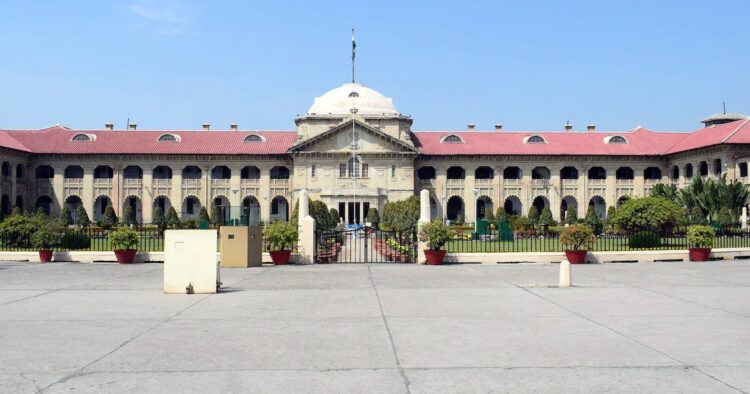In a recent ruling, the Allahabad High Court has emphasized that the decision to continue or terminate a pregnancy rests solely with the woman involved. This ruling came while the court was addressing a case involving a 15-year-old rape victim who sought an abortion at 32 weeks of pregnancy.
The case, which drew significant attention, involved a girl who had been raped and was now 32 weeks pregnant. The court heard her plea to terminate the pregnancy and carefully weighed the decision against various factors, including the medical risks involved. Despite the complexities, the court decided that the victim’s choice should be the primary consideration.
The bench, consisting of Justices Shekhar B. Saraf and Manjive Shukla, stated, “A woman’s decision about whether to continue or terminate her pregnancy should be made by no one but herself.” This stance reflects a broader principle of bodily autonomy, which asserts that a person’s control over their own body and medical decisions is paramount.
In addition to considering the victim’s choice, the court acknowledged that if the girl chose to proceed with the pregnancy and later put the child up for adoption, it was the state’s responsibility to handle the process with utmost privacy and care. The court emphasized that the adoption must be managed efficiently and with respect to the child’s fundamental rights.
The girl, living with her maternal uncle at the time, had been enticed away by a man, leading to her kidnapping and subsequent rape. After her recovery, the legal proceedings revealed that she was pregnant and faced a challenging decision regarding the pregnancy’s continuation.
The court noted that while medical experts had reported potential risks to the victim’s health if the pregnancy were to continue, they also indicated that terminating the pregnancy at this stage could pose significant threats. The parents of the victim were in favor of the abortion, but the court’s decision ultimately respected the girl’s autonomy.
Following extensive counseling for the girl and her parents about the risks of a late-term abortion, they decided to proceed with the pregnancy. The court’s ruling highlights the delicate balance between respecting individual choices and addressing medical and legal complexities in such sensitive cases.
This case underscores the ongoing debate surrounding reproductive rights and the legal framework governing abortion, particularly in cases involving minors and complex circumstances.

















Comments